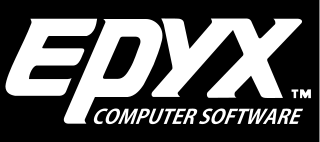
The Commodore 64, also known as the C64, is an 8-bit home computer introduced in January 1982 by Commodore International. It has been listed in the Guinness World Records as the highest-selling single computer model of all time, with independent estimates placing the number sold between 12.5 and 17 million units. Volume production started in early 1982, marketing in August for US$595. Preceded by the Commodore VIC-20 and Commodore PET, the C64 took its name from its 64 kilobytes(65,536 bytes) of RAM. With support for multicolor sprites and a custom chip for waveform generation, the C64 could create superior visuals and audio compared to systems without such custom hardware.

Commodore International was an American home computer and electronics manufacturer founded by Jack Tramiel. Commodore International (CI), along with its subsidiary Commodore Business Machines (CBM), was a significant participant in the development of the home personal computer industry in the 1970s, 1980s and early 1990s. The company developed and marketed the world's best-selling computer, the Commodore 64 (1982), and released its Amiga computer line in July 1985. With quarterly sales ending 1983 of $49 million, Commodore was one of the world's largest personal computer manufacturers.

Epyx, Inc. was a video game developer and publisher active in the late 1970s and 1980s. The company was founded as Automated Simulations by Jim Connelley and Jon Freeman, originally using Epyx as a brand name for action-oriented games before renaming the company to match in 1983. Epyx published a long series of games through the 1980s. The company is currently owned by Bridgestone Multimedia Group Global.

The software program VICE, standing for VersatIle Commodore Emulator, is a free and cross platform emulator for Commodore's 8-bit computers. It runs on Linux, Amiga, Unix, MS-DOS, Win32, Mac OS X, OS/2, RISC OS, QNX, GP2X, Pandora (console), Dingoo A320, Syllable, and BeOS host machines. VICE is free software, released under the GNU General Public License since 2004.

Zzap!64 was a computer games magazine covering games on the Commodore International series of computers, especially the Commodore 64 (C64). It was published in the UK by Newsfield Publications Ltd and later by Europress Impact.
Rush'n Attack is a run and gun game developed and released by Konami in North American arcades in 1985, and converted to the Nintendo Entertainment System and MS-DOS PCs. Its name is a play on the phrase "Russian attack" due to its Cold War setting. It was released in some countries as Green Beret and ported to home systems, becoming a critical and commercial success for arcades and home computers.

Impossible Mission is a video game originally written for the Commodore 64 by Dennis Caswell and published by Epyx in 1984. The game features a variety of gameplay mechanics from platform and adventure games, and includes digitized speech. Impossible Mission, which casts the player in the role of a secret agent infiltrating an enemy stronghold, is widely considered one of the best games for several platforms.

The Commodore 64 Games System is the cartridge-based home video game console version of the popular Commodore 64 home computer. It was released in December 1990 by Commodore into a booming console market dominated by Nintendo and Sega. It was only released in Europe and was a considerable commercial failure.

Winter Games is a sports video game developed by Epyx, based on sports featured in the Winter Olympic Games.

The Last Ninja is an action-adventure game originally developed and published by System 3 in 1987 for the Commodore 64. It was converted to the Apple IIGS, MS-DOS, BBC Micro, and Acorn Electron in 1988, the Apple II in 1989, the Amiga, and Atari ST in 1990, and the Acorn Archimedes in 1991.

Mission Asteroid is a graphic adventure game for the Apple II written by Ken and Roberta Williams and released in 1980 by On-Line Systems. It was later ported to the Atari 8-bit family and Commodore 64.

Home computers were a class of microcomputers that entered the market in 1977 and became common during the 1980s. They were marketed to consumers as affordable and accessible computers that, for the first time, were intended for the use of a single nontechnical user. These computers were a distinct market segment that typically cost much less than business, scientific or engineering-oriented computers of the time such as those running CP/M or the IBM PC, and were generally less powerful in terms of memory and expandability. However, a home computer often had better graphics and sound than contemporary business computers. Their most common uses were playing video games, but they were also regularly used for word processing and programming.

The Amiga CD32 (stylized as Amiga CD32, code-named "Spellbound") is a 32-bit home video game console developed by Commodore and released in Europe, Australia, Canada, and Brazil. It was first announced at the Science Museum in London on July 16, 1993, and was released in September of the same year.
Tiertex Design Studios Limited was a British software development company and former video game developer based in Macclesfield, England; it was founded in 1986, focusing on porting games to home computers and handheld platforms.